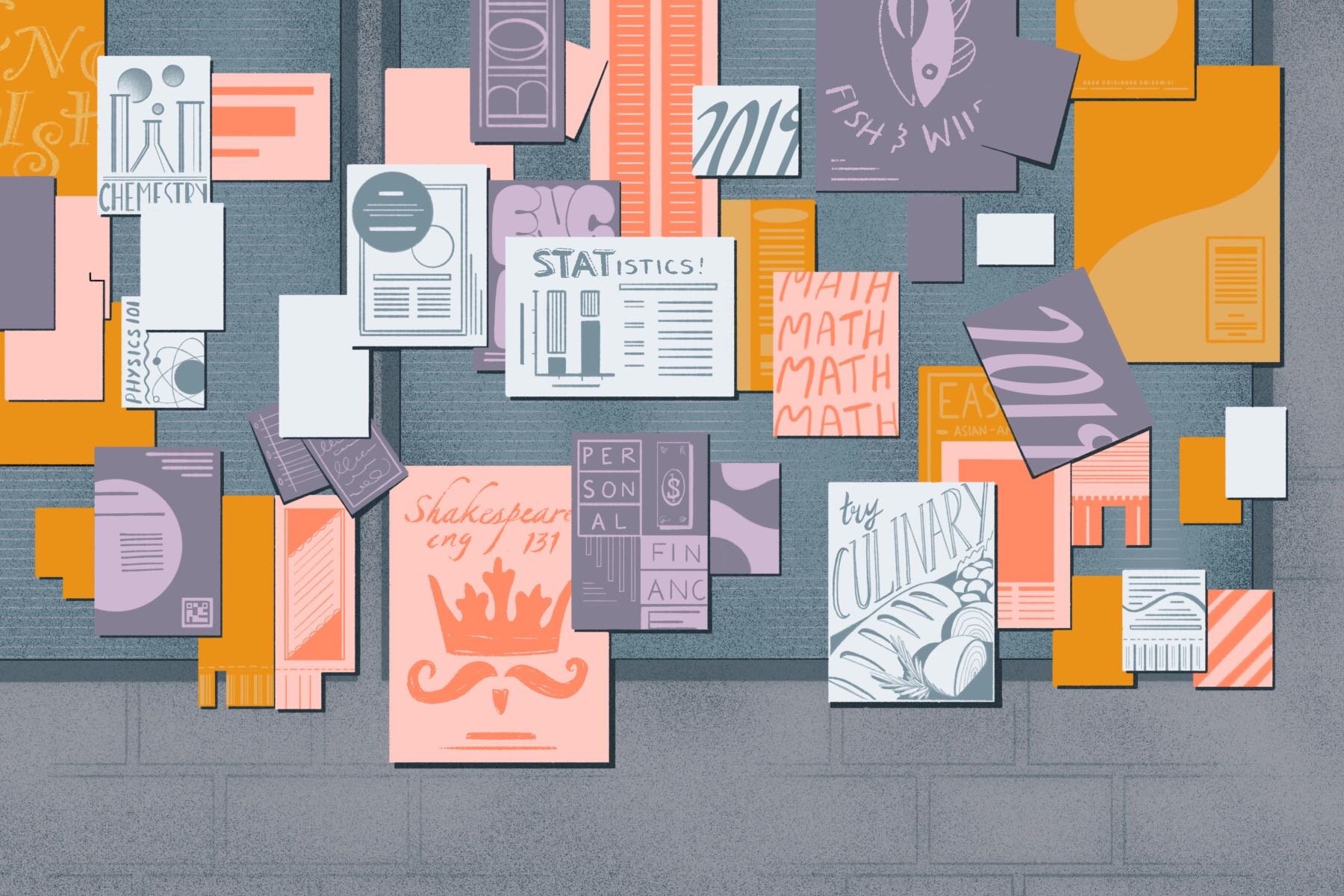You’ve got one slot left to fill for your course registration this semester. Between the required gen-eds and the challenging major-oriented classes, you’ve got a lot on your plate, so why not take a blow-off class? It would certainly ease the load, and there’s plenty of fun and interesting college courses you could choose. Your mouse hovers as you get ready to click on …
Music appreciation.
Don’t do it! Obviously, if music appreciation actually interests you, please do sign up. But if you’re enrolling just to fill some credit hours, reconsider; college courses cost students an average of more than $23,000 per semester, so it’s such a waste to invest in easy-A classes. Yes, tuition ultimately pays for the overpriced piece of paper that is your degree, but there is something to be said for devoting time and money into learning experiences that will actually be beneficial, post-graduation.
There are so many life skills that you’re not learning in the classroom (but could be!). Your school probably has some hidden gems that will serve you well in the real world. There are definitely more out there than this article lists, but as a jumping-off point, here are seven college courses every student should take:
1. Public Speaking
It’s a hard truth to grapple with, especially for the introverts out there, but public speaking is an essential function of every job. Even if your workday is spent alone in a dark room, chances are that you had to interview with someone to get that job. Learning how to give a solid speech involves practicing your speaking volume, tone and speed, while reading audience cues to determine how your speech is being received. It makes it easier that, in a classroom setting, the entire audience is in the same boat as the speaker, making them much more likely to forgive the occasional slip-ups and stutters.
Ultimately, a public speaking class simply lets you hone the craft. Why should you care? Having confidence in public speaking makes you more charismatic, which might not only land you the job, but a better salary to boot.
2. Computer Applications
Most jobs today require the use of a computer, in some form or another. A computer applications course covers everything surrounding the use of a computer, including typing, as well as using certain software and the internet. Anyone who plans on working in communications would benefit from knowing how to create web pages and manage social media accounts, but any job that involves administrative work requires fluency in Microsoft Office — especially Excel — so if you don’t know how to, say, write a basic formula, this class is vital.
3. Statistics
Don’t skip this one just because you’re not a math major (looking at you, art students). Understanding statistics is one of the most helpful skills to have, on the clock or as a consumer. In the professional world, you’ll have the proficiency to analyze information, whether you’re a nurse reading your patient’s chart or a film producer trying to assess the production budget.
You’ll also be able to discern when the stats are faulty in your daily life; a prime example is the media, which constantly goes on about “studies” and “research,” knowing the audience is more than likely to eat up the information without question. A stats student knows how to effectively question the data, to avoid being tricked by bad information.
4. Consumer Economics
Who taught you how to pay taxes? To take out a mortgage? Or open an IRA? It probably wasn’t your high school, because only 17 states require students to take some type of personal finance course to graduate. If you had to learn on your own (or if you just let Turbo Tax do all the work), a consumer economics course should be next on your list. You’ll learn how to fill out a tax form, plan a budget and build your credit score — things every single person needs to know how to do.
5. Professional Writing
Whether you’re a journalist or a construction worker, writing is an integral part of every field. If nothing else, taking a professional writing course (also called business writing) will help you crank out a stellar resume to help you nail all your interviews; well-versed writers appear more qualified and are more persuasive.
Even if you’re already an advanced writer, a course like this will teach you working-world norms (like how to sign an email) and faux pas (like what not to include in a cover letter), so you come out of college already looking like a pro.
6. Wellness
If there’s one thing the American education system drops the ball on, it’s teaching students how to live a healthy life. Forget sex education, which is bad enough; the curriculum on holistic health leaves much to be desired. Americans are seriously misinformed about what diets are best, how to exercise and if mental illnesses are even real.
Remedy this issue by taking a wellness course! You’ll learn that health involves more than just your physicality, diets don’t work and mental health days are worthwhile. You’ll also learn about spirituality and emotional wellness, and how to take steps to improve your overall wellness, which is something that many college students can easily overlook.
7. Foreign Language
Being bilingual is one of the most valuable assets for your resume. 20% of Americans natively speak a language other than English, according to Census Bureau data from 2017, which means that more jobs are looking for applicants who can speak multiple languages, especially Spanish.
However, 75% of Americans don’t know a second language, which means the applicant pool is slim. Taking college courses in a foreign language will build your skill quickly and set you apart from the competition (but be prepared to take more than one semester, if you want to become fluent).
If you can help it, don’t take an easy class just to fill a hole in your schedule, because there are a slew of helpful college courses out there that are relevant to the working (and living) world. You’ll not only be grateful for all the knowledge post-graduation, but you’ll see how your time has value and is best spent engaging in meaningful learning experiences.
















